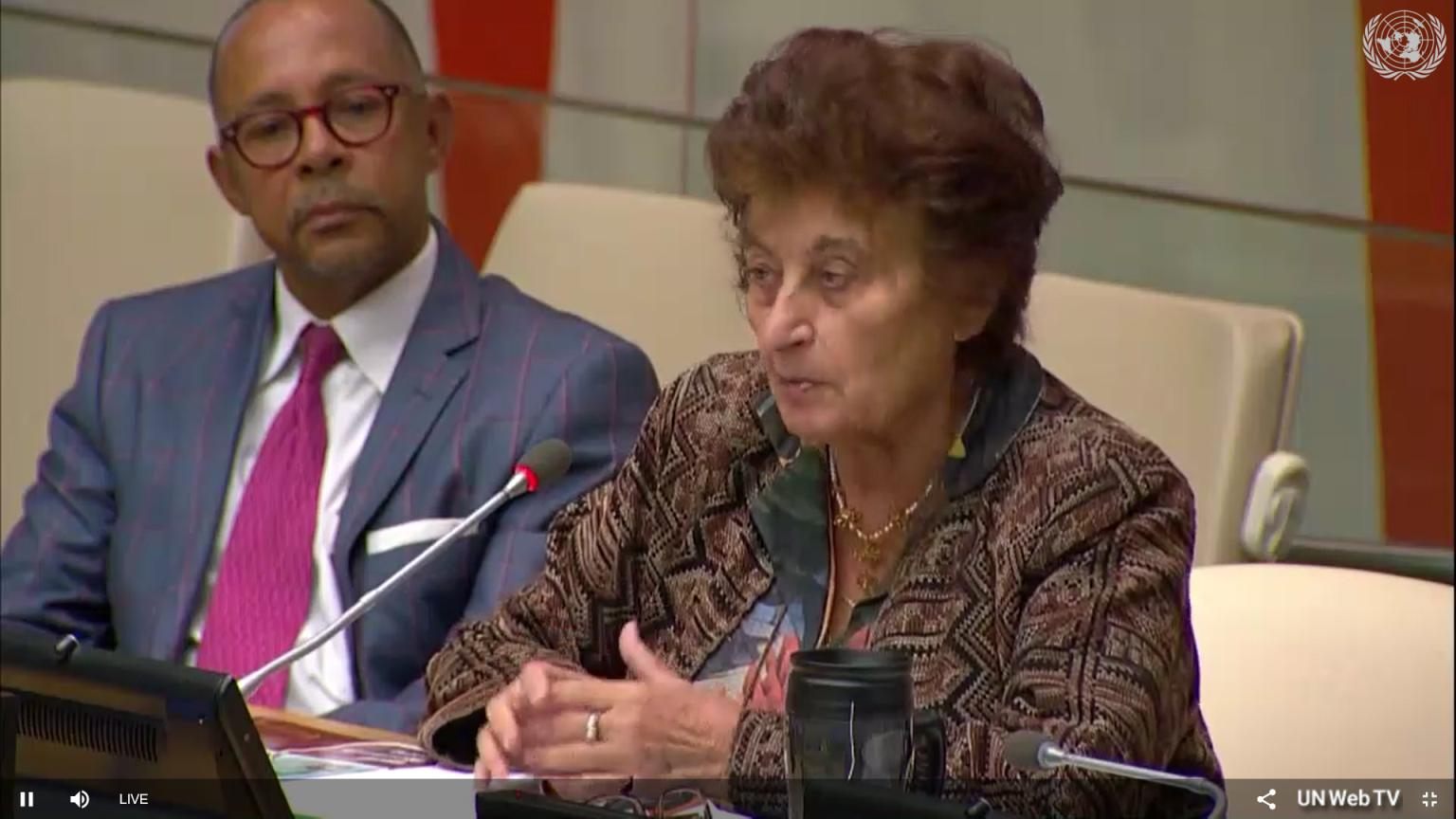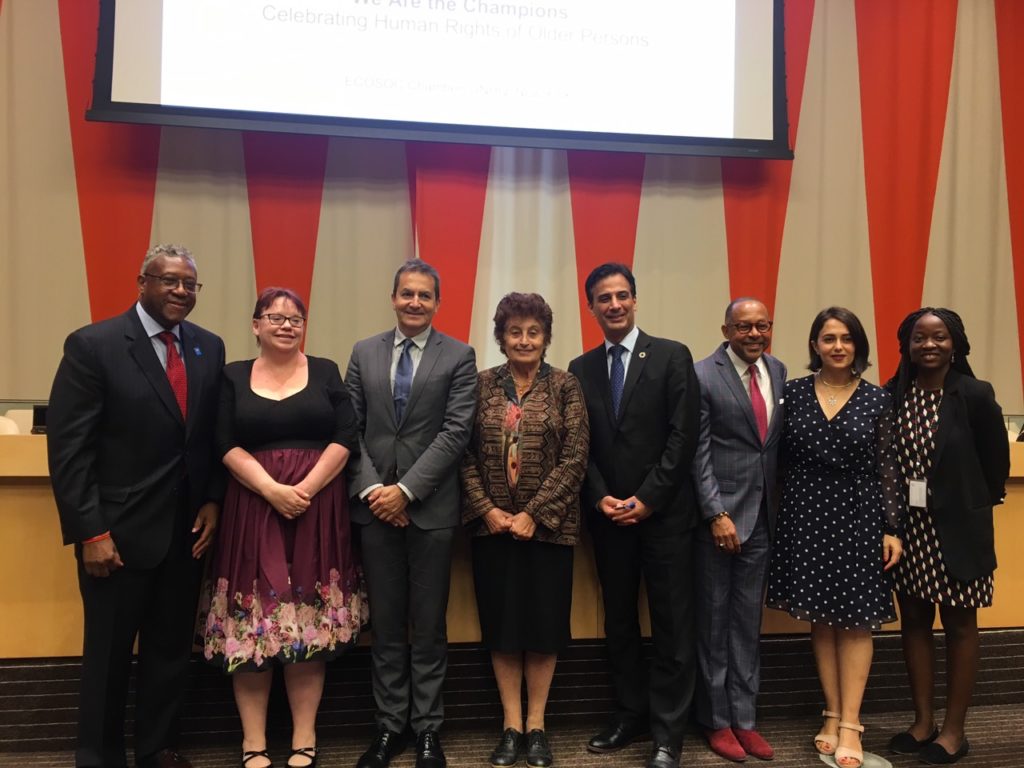- news
- participation of older female volunteer of the red cross of serbia in marking of the international day of older persons, un, new york
Participation of older female volunteer of the Red Cross of Serbia in marking of the International Day of Older Persons, UN, New York

Older female volunteer of the Red Cross of Serbia, Miroslava Matic was invited by the United Nations and UN NGO Committee on Ageing of in New York to participate in the 28th Anniversary Celebration of International Day of Older Persons on 4 October in the United Nations, New York and speak about the human rights of older people and the need to adopt a New UN Convention on Human Rights of Older People. This year’s theme is “We Are the Champions: Celebrating Human Rights of Older Persons” and below is the abridged version of Ms. Matic’s speech:
My name is Miroslava Matić, volunteer of the Red Cross of Serbia and I am here for the second time.
The first time I was invited to speak in the UN at the tenth meeting of the Open-Ended Working Group on Ageing, I considered it a small miracle, a once in a lifetime event, happening due to pure chance. Now, I must say that I am extremely honoured by this invitation, thanks to HelpAge, and the chance to represent the Red Cross of Serbia again. By trade I am an English teacher, retired now. In December this year I will have been teaching English for fifty years

I am also proud of the fact that I am older than the Declaration and still active. This is exactly what I would like to focus on, importance of being active at older age. Let us do what we can do for ourselves and this may help others too.
I belong to the generation born immediately after the Second World War in a country heavily ravaged by war and in those first years the whole population was striving to rebuild it and make conditions for work. We needed factories, houses, roads, schools, hospitals… In such circumstances, we weren’t giving much thought to the concept of human rights – we were focusing on rebuilding efforts. Anyway, we had the right to work, right to education, we had healthcare, we had voting rights regardless of gender (although, some political freedoms were harder to pursue in my country back then). My generation used to proudly say that we are the first generation to live our lives with no wars. I do believe that the Universal Declaration on Human Rights has raised people’s awareness and contributed to general drive for tolerance and peace. Older persons participate in this drive and that makes their lives more fulfilled and happier.
Universal Declaration on Human Rights was adopted in 1948, two years after I was born. We grew up and grew old together. As I was growing up, the country I was living in has, after the Second World War, made efforts to develop an equal society for citizens of both genders, with varying success. The society that was built was aligned with all the principles of the Universal Declaration on Human Rights and the modern society, even though this may not have been visible in the everyday life. Over the years, human rights based approach became increasingly important and the changing nature of human rights showed us that the Universal Declaration should be expanded. Thus the Convention on the Rights of Persons with Disabilities was adopted as was Committee on the Elimination of Discrimination against Women created – due to the particular challenges these groups face. In that sense, we can see the similarities between these processes and the process of advocating for the New UN Convention on the Rights of Older Persons in order to remove barriers to accessing their human rights that older persons encounter everywhere in the world.
The organising committee expressed their gratitude to the Red Cross of Serbia and HelpAge International for their help in Ms. Matic’s travel and participation at the event.

